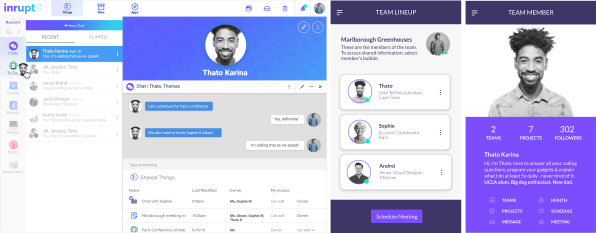When Tim Berners-Lee launches a new project for the World Wide Web, it has an impact. Saturday morning I woke up to the news that Sir Tim had a new project. With an interview with Fast Company and a new website, Inrupt was born, and everything might change.
Inrupt is a startup company that will support the Solid project that Berners-Lee and his research group at MIT has been working on for a few years. Berners-Lee’s business partner, John W. Bruce writes:
Inrupt’s mission is to ensure that Solid becomes widely adopted by developers, businesses, and eventually … everyone; that it becomes part of the fabric of the web.
I love the basic idea of Solid, where you store all your relevant information in a “personal online data store,” or POD, and make your own decisions about what information you share online. If you want to tell people that you’re going to some concert tonight on some online service, go ahead and share it with that service’s Solid app. When you decide that you’re embarrassed that you ever liked that performer, you can revoke that permission, and it disappears, everywhere you shared it.

I’m really excited that Inrupt wants to build the ecosystem around Solid, get more developers, more apps. Ultimately, that should lead to more users, presumably leading to an Internet closer to the Web founders’ original vision.
Reactions
When I read the Fast Company piece, and read the Inrupt home page, I admit that I thought “This is really on the right track, and where do I send my resume?” I even filled out the contact form at Inrupt (before I saw the mailing list subscription link) suggesting that when they started thinking about user docs, they should keep me in mind! And yes, I’m following them on LinkedIn too.
After reading every word on their website (OK, maybe I skipped some of the developer parts), I asked myself whether Inrupt was just a way for Sir Tim to cash in on his invention. Not that there’s anything technically wrong with that, but there is a downside.
Just a year or so after caving to the Copyright Cartel on the Digital Rights Management (”Encrypted Media Enclosures”) standard at the World Wide Web Consortium (W3C), you have to wonder whether Berners-Lee has just become another corporate pawn.
Child of Silicon Valley
I don’t know much about John Bruce, Inrupt’s CEO. I’ll be doing more research.
What I do know is this: Inrupt seems to be following one of the traditional Silicon Valley funding paths. Charismatic founder starts company, sucks up a ton of venture capital to stimulate growth, then either goes public with an Initial Public Offering (IPO) or a sale to another big company. When successful, the end game makes the founder rich, and the venture capitalists even richer.
The Inrupt website describes John Bruce thusly:
John led four start-ups, three of which resulted in global acquisitions. John will apply his decades of strategic business leadership and experience with leading software and service companies to launch Inrupt and the next phase of the web.
There’s nothing wrong with this experience, either. I worry though.
Yet, there are more than a few companies in the world of free and open source software that manage to make money without projecting evil onto the landscape: Automattic, Mozilla Corp, Red Hat, and SUSE come immediately to mind.
I’d rest a little bit easier if Inrupt declared itself a Public Benefit Corporation, which bylaws aims to put social good ahead of profit.
I’ll be watching Inrupt’s progress with hope, mixed with a little bit of dread.
Very interested in hearing what you think about Inrupt, Solid, and their prospects. Leave a comment, or otherwise get in touch.
